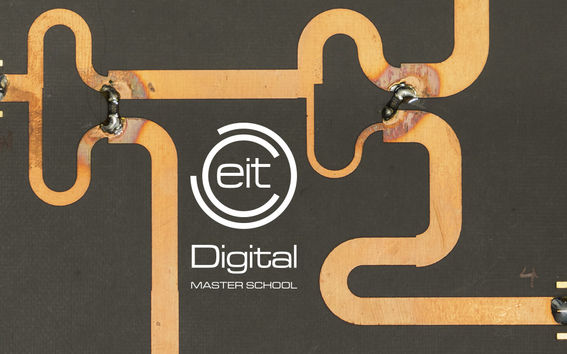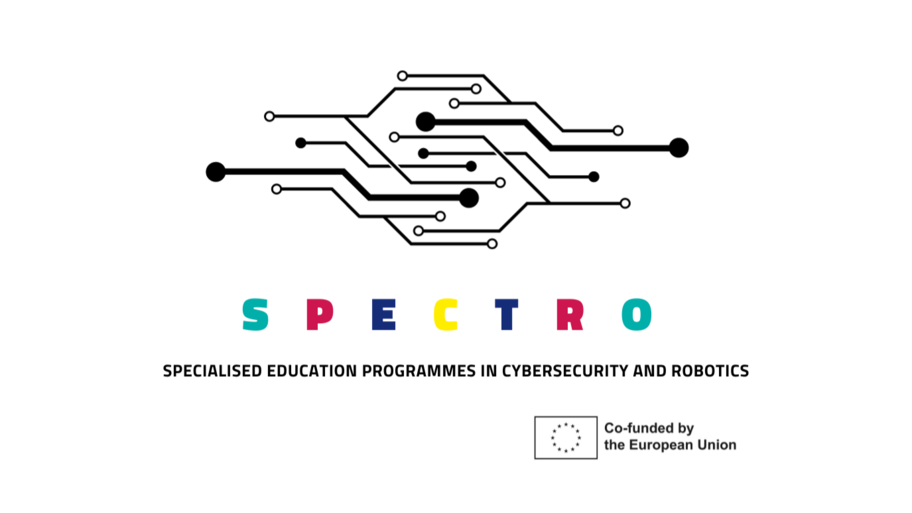Study at Aalto
Study in Finland at Aalto University, where science and art meet technology and business. Join a top-ranked, multidisciplinary community!

The Autonomous Systems and Intelligent Robots study programme offers a multidisciplinary blend of computer science and electrical engineering. Throughout the programme, students develop a diverse skill set spanning both areas. In computer science, students gain expertise in areas such as the Internet of Things (IoT), machine learning, artificial intelligence and robotic vision. In electrical engineering, the focus includes automation, robotics, control systems, embedded systems and communication technologies.
Students learn the latest theoretical knowledge and know how to apply their skills in practical real-life problems. Typical application areas for autonomous systems include self-driving vehicles, advanced robots in manufacturing and healthcare, industrial IoT, and autonomous devices in agriculture and home automation. They also play a growing role in scientific research, enabling autonomous exploration, data collection, and experimentation. The reach of autonomous systems also extends to software systems used in energy management and a wide range of other sectors.
The ICT Innovation programme has separate application periods and admission procedures from the other Master's programmes offered by Aalto University. Further information on the admission is available on the EIT Digital Master School website.
In the master’s programme, the language of instruction is English.
Students admitted to Master's Programme in ICT Innovation (EIT Digital Master School) - Autonomous Systems and Intelligent Robots are eligible for scholarships and liable for tuition fees according to EIT Digital's tuition fee and scholarship scheme.
Students are not liable for paying tuition fees to Aalto University or eligible for Aalto University scholarships. Please see programme website for more information.
EIT Digital Master School programmes are double degree programmes in which studies are taken at two different universities in two different countries. The programme leads into two Master of Science degrees (double degree) from the two universities the student has studied in.
Overall, the two-year programme comprises a total of 120 ECTS credits:
The programme is a double degree programme, which means that you will study at two European universities in two different countries. Aalto University offers AUSIR studies as both entry (first-year) and exit (second-year) studies. For an up-to-date list of universities, please visit the EIT Digital Master School website.
The first year is similar at all AUSIR entry point universities with foundation courses in
In addition, some elective courses may be chosen to prepare for a specialisation. An important part of the programme is also the Innovation and Entrepreneurship (I&E) courses.
During the second year of studies, the student chooses a specialisation option offered by one of the exit point universities. The specialisation option offered at Aalto University is Intelligent Robots and Systems.
The Aalto University specialisation offers a wide range of courses in robotics and intelligence systems, covering theoretical foundations, core methodologies, and essential hands-on skills. Elective courses include autonomous mobile robots, micro- and nano-robotics, neurorobotics, computer vision, robot manipulation, model-based control, sensor fusion, and machine learning methods. Together, these courses equip students with comprehensive knowledge and skills in intelligent robotics and systems, spanning hardware and software, algorithms, and real-world applications. The specialisation allows students to learn how to construct intelligent, autonomous robots and systems. The specialisation is further enriched by compulsory courses in innovation and entrepreneurship helping students to turn ideas into impactful solutions.
More information on the programme content and curriculum can be found in the Student guide. There may be some changes to the courses for the academic years 2026–2028 — the new curricula will be published in April 2026, when they will also be visible in the Student guide.
The EIT Digital Master School programmes are inherently international because the studies take place at two different universities in two different countries. The programme provides its students with a profound experience of working and studying in multiple countries in an international environment.
The degree programme provides eligibility for scientific postgraduate studies in Finland. The skills learned in the programme create an excellent basis for doctoral studies at Aalto University, another Finnish university or top international universities. Doctoral graduates from Aalto University continue to researcher or other academic career or high-level business positions, among other things. Read more about applying for doctoral studies at Aalto University: https://www.aalto.fi/en/doctoral-education/how-to-apply-for-doctoral-studies
The job market for autonomous systems and intelligent robotics is currently very promising, with a wide range of opportunities across industries. Automotive manufacturing remains a major industry in Europe and the university partners are well connected with these companies. In addition, autonomous systems and intelligent robots play an increasingly important role in service applications as well as in manufacturing, logistics, shipping, mining, and recycling industries. Autonomous technologies are also advancing in sectors such as construction, scientific research, environmental monitoring, and smart infrastructure. Furthermore, autonomous software systems are increasingly widespread in sectors such as media, finance, customer service, and healthcare – opening up a diverse set of career paths for graduates.
The studies in the programme are closely related to the research conducted at the relevant departments of the consortium universities including Aalto University's Department of Electrical Engineering and Automation and Department of Computer Science.
Please visit the EIT Digital Master School website to learn more about the industry partners and collaboration.
Please see further information on applying at EIT Digital Master School website.

Study in Finland at Aalto University, where science and art meet technology and business. Join a top-ranked, multidisciplinary community!

Finland is renowned for its excellent rankings in education and quality of life.
The EIT Label is a quality seal awarded by the European Institute of Innovation and Technology (EIT) to a KIC educational programme that has been assessed positively by the EIT on the implementation of the EIT Quality Assurance and Learning Enhancement (EIT QALE) system, and the application of specific quality criteria with focus on the EIT Overarching Learning Outcomes (EIT OLOs), robust entrepreneurship education, highly integrated, innovative ‘learning-by-doing’ curricula, international mobility and outreach.



EIT Digital Master School
masterschool@eitdigital.eu
https://masterschool.eitdigital.eu/